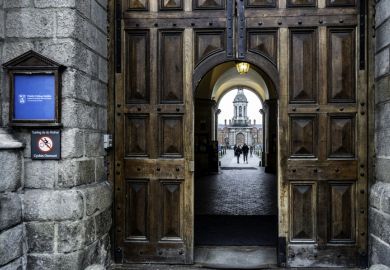Australian provincial governments, representative groups and legal and policy experts have united against Canberra’s plan to limit international enrolments, warning of dire economic consequences from what they say is an unnecessary, discretionary and “over-extensive” bureaucratic intervention.
In dozens of submissions to a Senate committee inquiry, stakeholders have expressed support for measures to boost integrity in international education but outlined their opposition towards the proposed enrolment caps. Critics say the proposal was not flagged in consultation ahead of the draft legislation’s release, and its onerous and poorly defined conditions and unrealistic timeframes risk “prolonged damage” to the industry and broader economy.
Consultant Tracy Harris said the “practicalities” of the international education operating environment had “not been sufficiently considered” in the legislation’s drafting.
“Education providers will be forced to direct resources to legislative compliance rather than improving the student experience, leading to unnecessary job losses as revenue declines,” warned Ms Harris, a former Austrade education commissioner.
The Law Council of Australia said the caps could impede the ability of universities and colleges to meet market demands, freely conduct business and make appropriate commercial decisions. “Genuine registered providers would be restricted in their capacity to meet the demand of international students,” its submission says.
Australian National University analyst Andrew Norton said the bill was “an extreme example of the concerning decline of the rule of law in higher education policy”.
“Rule-driven programmes are being replaced with personal decision-making by ministers,” he wrote. “Whether or not ministers exercise these powers in capricious ways, the fact that they have them changes the whole system. Every institution finds it hard to plan, because the rules can be changed easily and with little notice. Changes in rules can cost [students] their application fee and hopes of studying in Australia.”
Professor Norton said the enrolment caps were unnecessary because other government measures – such as visa processing “unpredictability” and a massive hike in visa application fees – would “significantly” reduce international student numbers.
He said the proposal would lead to “stranded places” that were “theoretically available but cannot in practice be used”, resulting in international enrolments “well below” each institution’s capacity – generating more job losses, labour constraints, reputational damage and “student disappointment” than “needs to be suffered to reduce net overseas migration”.
The Western Australian government said visa delays and rejections had already caused redundancies and “scaling down” of operations in an industry worth over A$2.9 billion (£1.5 billion) to the isolated state. Its submission outlines concerns that the sector may be unable to accommodate displaced students “if a large provider were forced to close”.
“Many of the changes have been rapid, inconsistent and unclear, and have not provided sufficient lead time or included transitional arrangements to allow providers to be able to adapt without major disruption to their operations,” it adds.
The Victorian Government warned of “prolonged damage” to an industry that generated some A$14.8 billion for the state and supported around 63,000 jobs. It said Victoria’s post-Covid recovery had been slower than elsewhere, and the state would be “disadvantaged relative to other jurisdictions” by the proposed caps.
Universities Australia said the proposal endangered “thousands of jobs”. English Australia, which represents language colleges, said the draft legislation represented a “serious threat” to international education, its 250,000-plus workers and “the many local communities and economies that rely on the sector”.
Independent migration expert Abul Rizvi said enrolment caps were poor policy but their likely impacts had been exaggerated.
He said predictions that the proposal could reduce international student arrivals by 30 per cent, costing Australia some A$4.1 billion and 22,000 jobs next year, were modelled against trends from 2023, when student visa grants were “unsustainably” high because of a Covid backlog and favourable student work rights.
“The government was never going to allow 2023 rates of growth to continue,” Dr Rizvi told Times Higher Education. “I very much doubt the industry could have withstood 2023 rates of growth continuing. I can’t see where they’d find enough teachers.”
Register to continue
Why register?
- Registration is free and only takes a moment
- Once registered, you can read 3 articles a month
- Sign up for our newsletter
Subscribe
Or subscribe for unlimited access to:
- Unlimited access to news, views, insights & reviews
- Digital editions
- Digital access to THE’s university and college rankings analysis
Already registered or a current subscriber? Login










